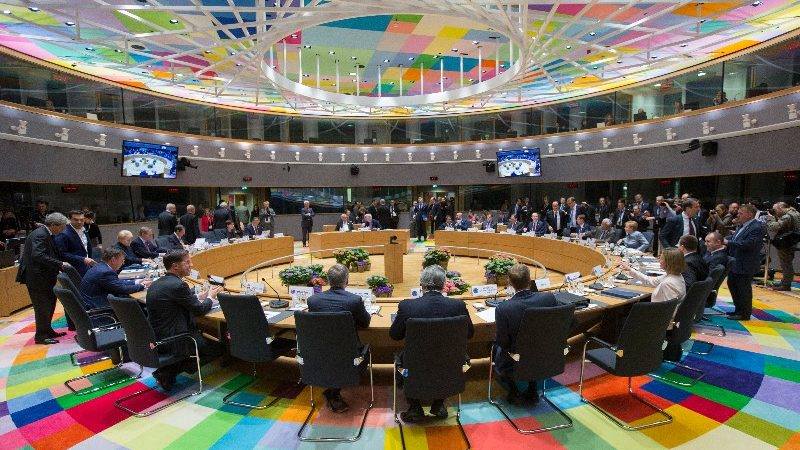Coffee is cold
Prepare for marathon budgetary negotiations

“Coffee is cold, but it will get you through. Compromise, that’s nothing new to you”, sings my all-time-hero Bono. I wonder how many of the European leaders know the lyrics of the U2 so thoroughly as I do, but I am sure they had something like this in mind when they sat down to discuss the “disgusting question” of post 2020 EU budget this Friday morning. There are so many frontlines, that the battle on the next Multiannual Financial Framework (MFF) won’t certainly be over this weekend. Only God knows if it would even end by before 2020.
The EU is built on slow steps of incremental decision-making, compromise-seeking and packages deals, we all know the magic mantra. As the integration’s history has shown, it might have taken for a long and painful bargaining, but leaders always managed to find a way for the further steps. Well, they will really have to brace their hearts to repeat this miracle. This time, it will be extremely hard for the European actors to find a common denominator.
As a relatively new battlefield, many argue for stricter criteria to access EU funds. The principle of conditionality has already gained ground during the years of economic crisis management, but it has seen a revival due to the growing concerns about the respect of European values in Poland and Hungary. From time to time, Commissioners Oettinger and Jourová talk about this highly controversial mean to sanction these states, as well as it returns to the German public debate. It has an even more delicate aspect, because as it happened this week as well, Chancellor Angela Merkel just can’t forget about her fixation with the refugee issue, even if the rest of Europe would like to take a tougher stance on it, and she treats the refugee relocation schemes as the main criteria for EU investment.
Moreover, the other important actor of the EU Budget, the European Parliament hasn’t managed yet to elaborate a common position on the topic. Of course, party politics defending their own black sheep won’t make it easier either to pronounce on this sensitive subject. It’s far beyond the scope of this blog post to evaluate if the respect of the rule of law can be measured and somehow linked to EU payments. But as the Commission’s and Merkel’s approach seems reasonable, the arguments from the concerned governments should also be taken into consideration. Namely, that these issues shouldn’t be confused. The EU funds aim at economic convergence for the sake of the whole common market, and Western companies – mostly the German ones – got a huge share from the procurements financed by EU money.
Then comes the evergreen discussion on the need to shrink funds for the Common Agricultural Policy. While the European integration was namely founded to strengthen the steel and coal market, in the reality, it has always been a great way to co-finance European – mostly French – agriculture. French farmers are legendarily ruthless when it comes to money, remember just the ugly scenes of the so-called “strawberry war” in the 1990s when they got outraged by having a strong competition from farmers of the at-that-time new member state Spain. Knowing well France’s strike culture, other ugly scenes are about to come if the EU decides to give less farm subsidies, which is something that President Emmanuel Macron can’t really afford. But to make the picture even more difficult, the cuts would seriously hurt for example the Netherlands and Denmark, which are usually net contributors to the EU budget, but have a very important agricultural sector. So, governments would have hard times explaining to their voters the losing of the only form of EU investment in the country. Not to mention the Eastern European states, who agreed to get eurocents from the CAP funds in order to have a quicker access to the freedoms of the single market in their EU accession.
Thirdly, there is an unsolvable conflict between “those who don’t want to pay more and those who don’t want to receive less” after Brexit, as Commission President Juncker outlined very well. Net beneficiary Visegrád countries pledging to pay more to the common budget seem a bit hypocritical, as well as the German nearly-government’s commitment, given that the public opinion back at home is frightened by idea of a transfer union and they struggle to form a functioning coalition. There isn’t a consensus either on the purpose of the raised budget. While Germany and Italy would like to give more money for security and the management of migration flows, France is committed for larger budget in order to prevent another economic and financial crisis, and to boost the economy. And this is the point, where I completely lost track about the web of diverging interests.
So, all of my faith rest on those wonderful deal-breaker sherpas behind the scenes who are able to see through the hyper-difficult nets of different commitments and negotiate those incredible packages of support and opposition. To conclude the post 2020 MFF might be their hardest job ever.
